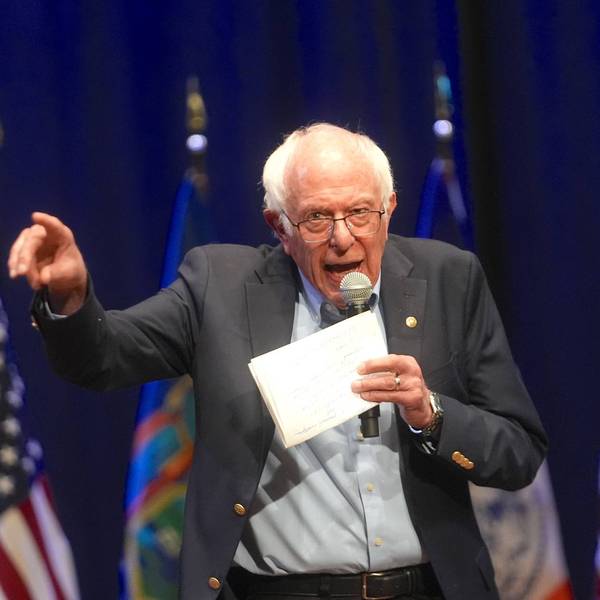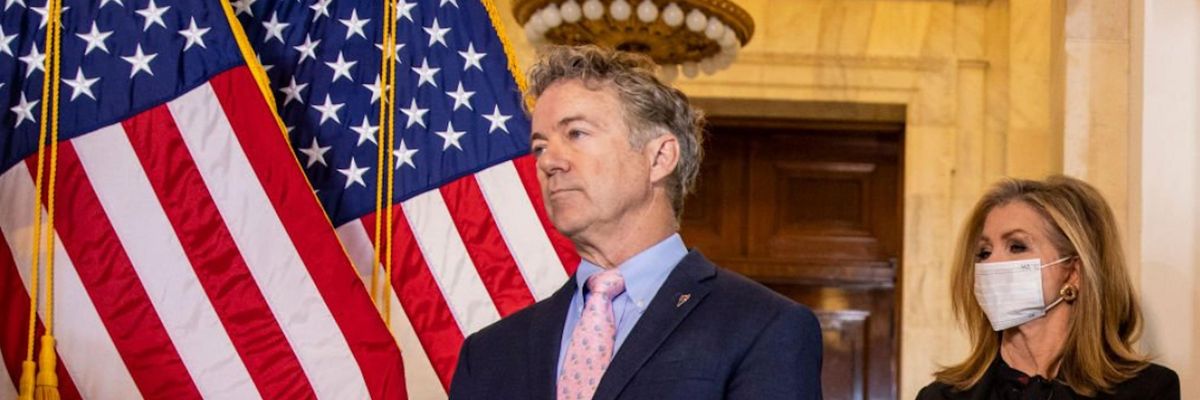A House-approved bill to continue funding a free school lunch program for low-income families hit a roadblock Thursday after at least two Senate Republicans--including a lawmaker who objects to a Biden administration policy banning discrimination against LGBTQ+ students--moved to thwart the measure.
"The USDA waivers provided essential flexibility for families to get food and to ensure schools can keep providing nutritious meals for children across the country."
In an overwhelmingly bipartisan 376-42 vote, House lawmakers approved the Keep Kids Fed Act, a bill to extend the U.S. Department of Agriculture's (USDA) child nutrition waiver authority--which was set to expire June 30--and authorize $3 billion in funding for communities to provide healthy meals for children and support to schools and daycares amid supply chain challenges and soaring food costs.
"No child in the richest country in the world should go hungry," Congressional Progressive Caucus Chair Pramila Jayapal (D-Wash.) said in a statement after the House passed the bill.
"The USDA waivers provided essential flexibility for families to get food," she continued, "and to ensure schools can keep providing nutritious meals for children across the country--as many as 10 million children received free breakfast and lunch each day under this program."
"The impact of this program has been unequivocal," Jayapal asserted, noting that "95% of school nutrition staff reported the waivers helped reduce child hunger, 89% said they eased the burden on parents and guardians, and 82% said they support academic achievement."
House Democrats urged the Senate to swiftly approve the measure. However, according to NPR's Ximena Bustillo, Sens. Rand Paul (R-Ky.) and Marsha Blackburn (R-Tenn.) have put holds on the proposed legislation.
Blackburn was one of five GOP senators led by Sen. Roger Marshall (R-Ks.) who last week sent a letter to the Government Accountability Office objecting to USDA guidance prohibiting discrimination against LGBTQ+ people in any program receiving federal nutrition funding.
The Republican lawmakers' obstruction won't stop the bill from passing, but it will delay approval.
"While those waivers were scheduled to expire this month, the need has not," Jayapal stressed. "Especially given the inflated cost of food and the continuing challenges of Covid, we cannot allow 95 million meals to be missed by kids this summer."
Bustillo explained the significance of the waivers:
Before the pandemic, federal laws required schools meet specific nutrition requirements that governed what they could and could not serve students. They had to serve their meals in "congregate" settings, like a cafeteria or a park. Families had to meet income requirements to receive free or reduced-price meals under the National School Lunch Program. And in the summer, only areas that had 50% of kids qualifying for free or reduced-priced meals can operate a summer meal program.
Those rules went out the window during the pandemic... The school meal waivers allowed for students to grab lunches to-go and or be delivered via school buses. They also provided flexibility for schools when the supply chain disruptions began and never quite went away.
"The biggest omission," writes Bustillo, "is the exclusion of flexibilities that suspended eligibility requirements for free and reduced-price meal applications, giving every student free meals. Though the bill provides free meals to more students, families will need to resume filling out applications to qualify."
Jillien Meier, director of partnerships and campaign strategies at No Kid Hungry, told NPR that the waivers "really provided a lifeline, because in a lot of rural and suburban communities, poverty is so widely dispersed over large geographies."




